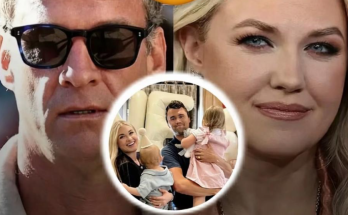For more than four decades I poured my heart into my career. Like so many people, I woke up early, managed deadlines, saved carefully, and counted the years until I could finally enjoy a slower pace. In my mind, retirement would be a time for fresh beginnings: gentle mornings tending to flowers, afternoons spent reading or visiting friends, and perhaps travelling to destinations I had only admired in travel magazines.
When the long-awaited day finally came, it felt like a prize I had earned through persistence and discipline. No more alarm clocks at dawn. No more juggling endless meetings. Just space to breathe, reflect and savor the simple joys of life. I envisioned weekends with my grandchildren, learning new hobbies, and reconnecting with my own dreams.
Yet even the most carefully planned chapter can hold surprises. As I stepped into retirement, I soon realized that my adult son was facing challenges that weighed heavily on him. Despite his best efforts, he was finding it difficult to secure steady employment. With each rejection letter and closed door, his confidence slipped. Gradually he began to lean more on me for financial help, and I noticed his enthusiasm for trying new opportunities fading.
At first, I offered support without hesitation. After all, family stands together in hard times. But as weeks turned into months, it became clear that this pattern was not helping either of us. My savings, carefully built over decades, were being stretched. More importantly, my son was not developing the independence and resilience he needed for his own future.
One evening, our feelings came to a head. Over dinner, he spoke openly about expecting me to continue supporting him financially. The words were difficult to hear, because they struck at the heart of the retirement I had envisioned. Summoning calm, I gently but firmly explained that after a lifetime of work it was time for me to enjoy my own season of rest and discovery — and equally time for him to embrace responsibility for his life.
The conversation was emotional. Setting boundaries with someone you love is never easy. Yet that night also planted the seed for change. The following day his partner reached out to me, her voice filled with worry. She explained that he was not truly resentful but overwhelmed: afraid of failing, unsure how to begin again. Hearing her perspective softened my heart. I realized his struggle was rooted more in fear and uncertainty than in entitlement.
This shift in understanding gave me the courage to take a different approach. Instead of simply saying “no,” I decided to combine clear limits with active encouragement. I visited my son and we spent hours talking openly about his goals, fears, and hidden talents. Together we mapped out practical steps: refreshing his résumé, identifying industries that matched his skills, applying for training programs, and setting small, achievable weekly targets.
Our plan was not magic, but it gave him structure and a sense of control. Slowly he began sending out applications, attending workshops, and exploring paths he had never considered. I, in turn, offered guidance, shared my own experiences about resilience at work, and celebrated each small victory.
What I learned from this season surprised me. Retirement is often portrayed as the end of teaching, guiding, or parenting, but in reality it can be a powerful time to model values like perseverance, budgeting, and self-reliance. By showing my son that love includes accountability, I helped him discover his own strength.
Over the months that followed, I watched him grow more confident. He began to see setbacks not as proof of failure but as lessons. He learned that independence does not mean walking alone — it means moving forward while knowing that support and encouragement are available.
Today my retirement looks different from what I once imagined, but in a way it feels richer. I still enjoy my quiet mornings in the garden, but I also find fulfillment in witnessing my son’s progress. Our relationship has deepened because it is now built on honesty, mutual respect, and shared goals.
For anyone entering retirement with adult children at home or leaning on you financially, my experience offers a few gentle reminders:
Communicate openly and calmly. Honest conversations about expectations prevent resentment on both sides.
Set boundaries with compassion. Limits are not rejection; they are a framework for growth.
Offer guidance, not just money. Practical advice, encouragement, and emotional support can be more empowering than financial help alone.
Celebrate small steps. Progress toward independence is often gradual but every milestone matters.
In the end, retirement is not only about withdrawing from work; it is also about discovering new ways to nurture, teach and inspire — even as we protect our own well-being. Saying “no” when necessary, and “I believe in you” when it counts, can be one of the greatest gifts we give our adult children.
Watching my son step into responsibility has become one of the most rewarding chapters of my life. It reminds me that love evolves, roles shift, and growth is possible at any age — for parents and children alike.




